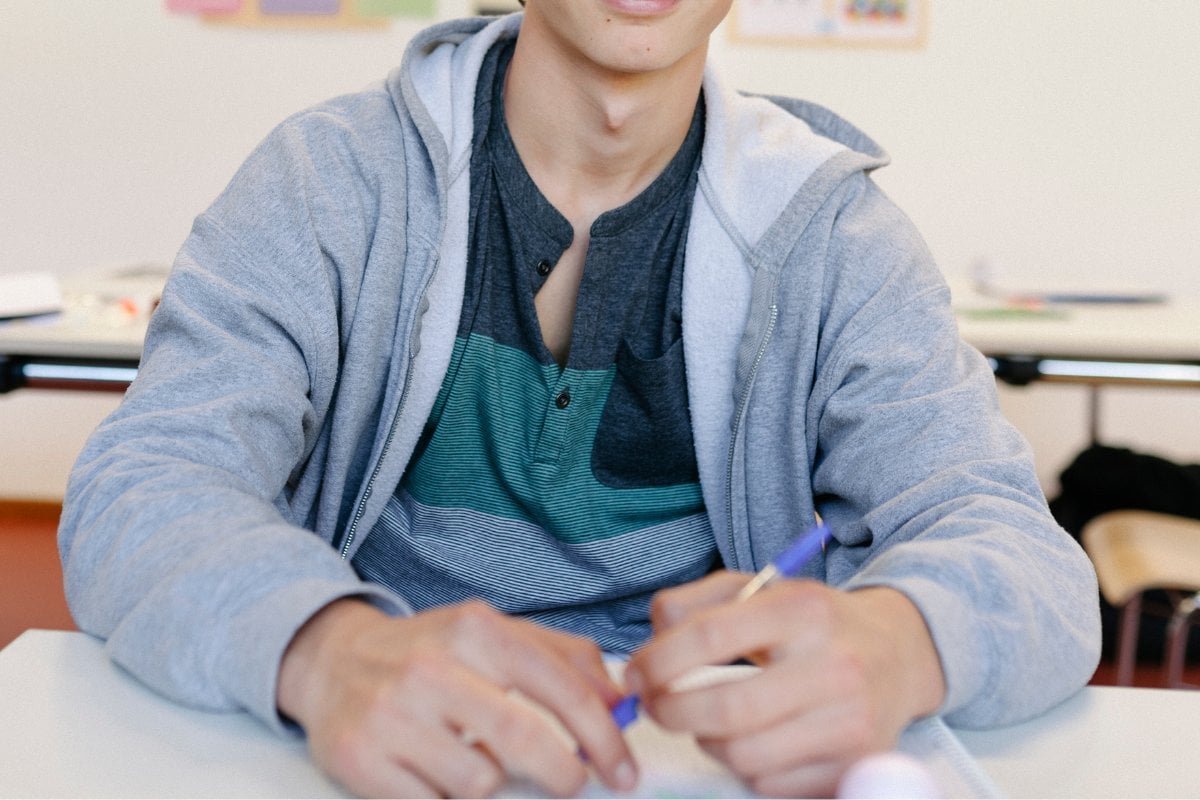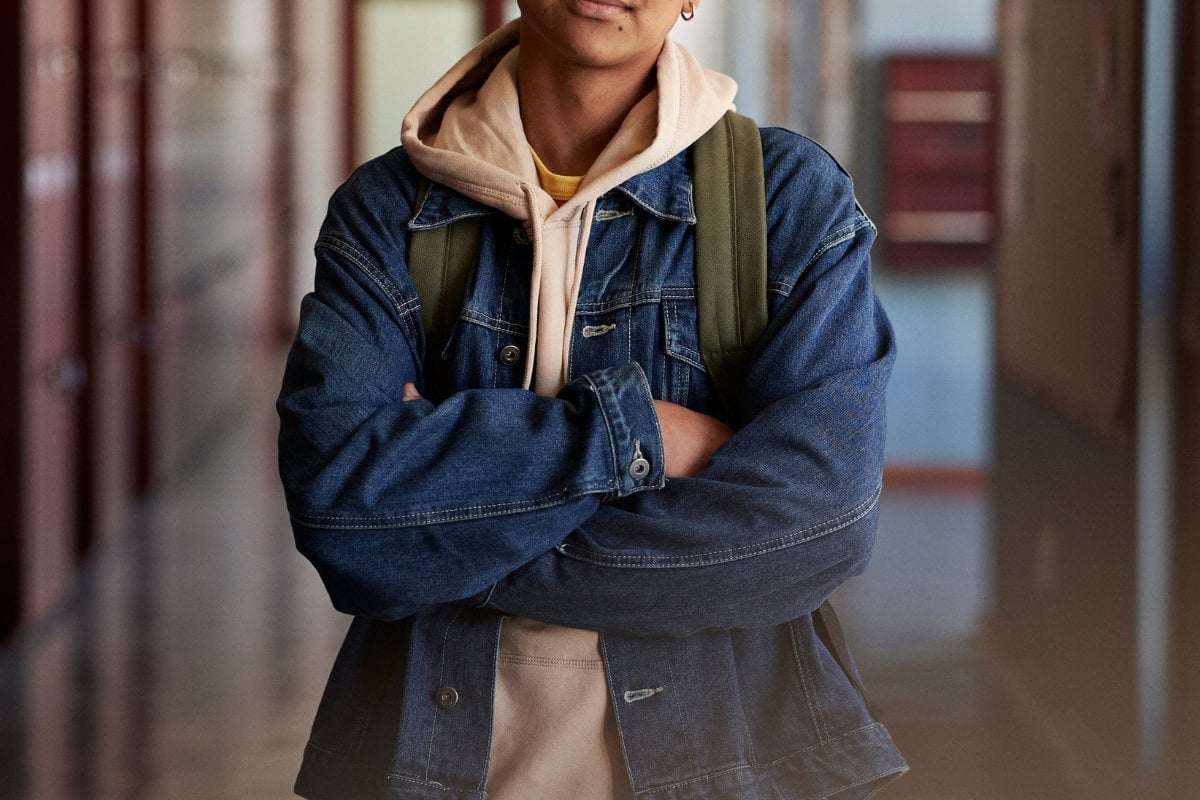
When Kelly* received confirmation that her 16-year-old son, Kai*, would be expelled from school, she struggled to wrap her head around it.
She never imagined her own child receiving a suspension, let alone being asked to leave a school—twice.
Exclusions happened to "bad" kids, from "bad" families. But hers was a "good" family, and yet here she was.
For years, she’d felt the judgment pour down the phone or across the table, when the school called her in to discuss Kai’s behaviour, his disruption.
Watch: Does social media negatively impact teen mental health? Article continues after the video.
As an educated professional, she knew it wasn’t her fault. Still, she found herself desperately explaining that Kai’s situation was unique, that his siblings loved school, behaved, and got good grades. But Kai had always been intense.
"In primary school, his unique characteristics manifested as quirks, rather than disruptive or ‘bad’ behaviour," Kelly says.
But once he started highschool, things went downhill.
"He was often disruptive in class. It started with too much talking, shifting in his seat, or playing with items like pencils and books, or taking things from other people’s desks," Kelly says.



Top Comments